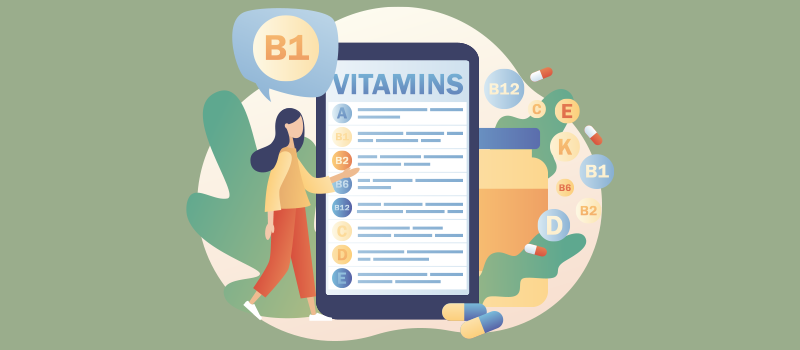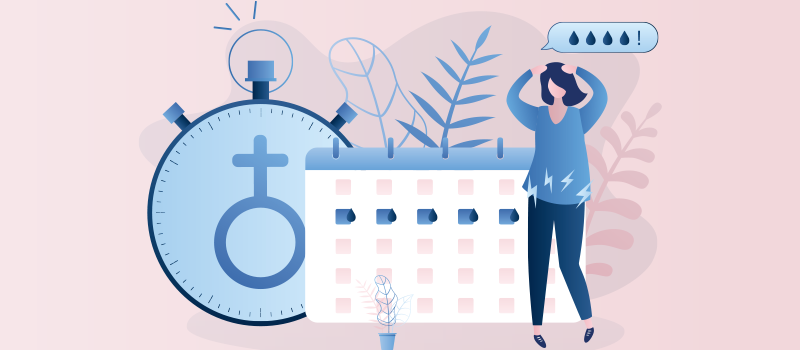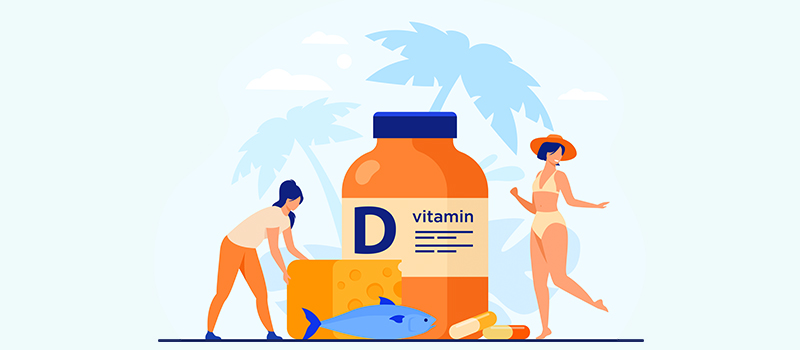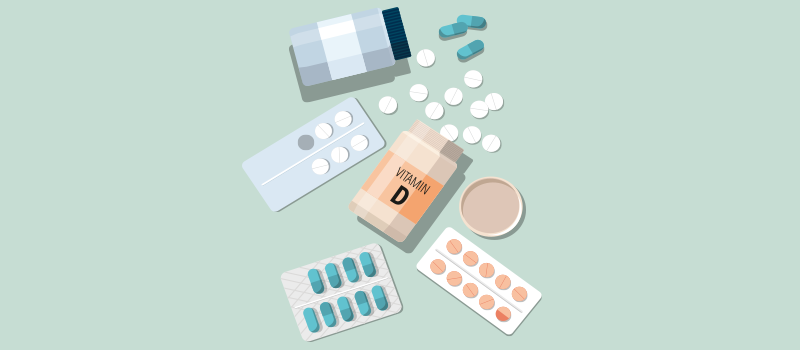What’s the Buzz
The Bee Healthy Blog
The Best Vitamins for Women's Health

A woman’s nutrient needs change throughout her lifespan. For instance, puberty triggers growth spurts associated with increased nutritional needs during this critical period of rapid growth. Pregnant and breastfeeding women require specific nutrients in greater amounts compared to non-pregnant women. These nutrients often need to be supplemented through prenatal vitamins. Young women and postmenopausal women have different nutritional requirements. For example, older women may need to boost intake of certain key nutrients like vitamin D to support bone health. A woman’s nutritional needs also depends on her overall health, lifestyle, and immune function. Supplementation is not necessary for all women. Some women can meet their recommended daily intake of vitamins and minerals through diet. Others may need dietary supplements to prevent a vitamin deficiency.
Continue reading to learn more about some of the most important vitamins and minerals for women, including the recommended daily intake and food sources.
Iron
Why you need it: The body needs iron to produce red blood cells. It is also essential for cell growth and supports immune function. An iron deficiency can cause anemia. Blood loss during menstruation (periods) in women depletes iron stores each month. Women who have heavy periods need to eat foods rich in iron or take an iron supplement.
Where to find it: Food sources of iron include dark green leafy vegetables, turkey, chicken, fish, beans, cereals, and whole grains. Taking vitamin C with a meal has been found to help the body absorb iron.
Recommended daily intake: The National Institutes of Health (NIH) recommends 15 mg of iron daily for teenage girls (age range 14-18), 18 mg of iron daily for women (ages 19-50), and 27 mg of iron daily for pregnant women. These are the recommendations for meat-eaters. The RDA (recommended dietary allowance) is 1.8 times higher for vegetarians because plant-based foods have lower bioavailability of iron than meat and poultry.
Calcium
Why you need it: Calcium is an essential mineral for women’s health because it is needed for muscle function and bone health. Women start losing bone density as early as their 20s. It is necessary to consume adequate amounts of calcium and other bone-supporting nutrients to prevent osteoporosis (brittle bones).
Where to find it: Milk, yogurt, cheese, and other dairy products are good sources of calcium, as are dark green leafy vegetables like kale and broccoli.
Recommended daily intake: The NIH recommends taking 1,300 mg of calcium every day for teenage girls (ages 14-18), 1,000 mg per day for women (age range 19-70), 1,300 mg of calcium per day for pregnant or breastfeeding women, and 1,200 mg of calcium per day for women over 70.
Vitamin A
Why you need it: The body needs vitamin A, a fat-soluble vitamin, for the proper functioning of the eyes and immune system and skin and nail health.
Where to find it: Green leafy vegetables, tomatoes, yellow and orange vegetables (carrots, sweet potatoes), fruits, dairy products, fish, and fortified cereals are good sources of vitamin A.
Recommended daily intake: Prepubertal girls (age range 9-13) need 600 mcg RAE (retinol activity equivalents or active form) every day. Teenagers (ages 14-18) and women (age 18+) need 700 mcg. The requirement is 770 mcg for pregnant women. You need to take 1,300 mcg of vitamin A every day if you are lactating.
B Vitamins
Why you need it: Eight B vitamins play a role in critical body functions like energy production and nerve function. Evidence suggests these essential vitamins also contribute to healthy hair, skin, eyes; brain function; muscle function; and metabolism. Deficiency of B vitamins during pregnancy can lead to birth defects in the baby.
Where to find it: Many foods like eggs, poultry, fish, meat, dairy products, green leafy vegetables, peanut butter, and cereals are good sources of B vitamins. They can also be obtained from multivitamins (dietary supplements or prenatal supplements).
Recommended daily intake: The amount of B vitamins women in the age range 19-50 should get every day ranges from 1.1 mg for vitamin B1 and B2, 14 mg vitamin B3, 5 mg of vitamin B5 (pantothenic acid), 1.3 mg of B6, 30 mcg of B7, 400 mcg of B9, and 2.4 mcg of vitamin B12. Requirements are higher for women who are pregnant or lactating.
Vitamin C
Why you need it: The body needs vitamin C (ascorbic acid) for normal growth and development as well as the repair of tissues, bones, and teeth. Ascorbic acid also functions as an antioxidant against free radicals. It supports the immune system in protecting the body against infections.
Where to find it: Fruits and vegetables, specifically citrus fruits, broccoli, and red pepper.
Recommended daily intake: The NIH recommends 45 mg of vitamin C every day for girls aged 9-13 years, 75 mg for girls aged 14-18 years, 90 mg daily for women over 19 years of age, 85 mg daily during pregnancy, and 120 mg daily during lactation.
Vitamin D
Why you need it: Vitamin D is essential for cell growth, bone growth, and immune function. It also promotes neuromuscular function, reduces inflammation, plays a role in the development of diabetes, and may protect against certain types of cancers.
Where to find it: Fatty fish (tuna, salmon), fish liver oils, egg yolks, cheese, and beef liver are food sources. You can also try and get enough vitamin D through sunlight exposure or by taking a supplement.
Recommended daily intake: The NIH recommends 600 IU of vitamin D daily for women under age 70 and 800 IU daily for women over age 70. Read more about prescription vs. over-the-counter vitamin D.
Folic Acid
Why you need it: Folic acid or folate is essential for producing new cells, including red blood cells. It is also needed for proper brain function. This vitamin is needed during pregnancy for the proper brain development of the baby. Folate deficiency during pregnancy increases a woman’s risk of giving birth to a baby with congenital defects. Up to 75% of severe birth defects in babies may be prevented by getting enough folic acid early in pregnancy.
Where to find it: Green leafy vegetables, beans, avocados, peanuts, wheat germ, sunflower seeds, and eggs. The synthetic form of folic acid is often present in a prenatal multivitamin.
Recommended daily intake: The recommended daily intake of folate in women is 400 micrograms. This increases to 600 micrograms during pregnancy and 500 micrograms while lactating.
Omega-3 Fish Oil
Why you need it: Omega-3 fish oil is needed for proper brain function (memory, cognition). It also helps to control high blood pressure, reduces inflammation, and helps metabolize lipids (fats).
Where to find it: Fatty fish (sardines, salmon, tuna, mackerel), nut and plant oils. Fish oil capsules are available for people who don’t eat seafood.
Recommended daily intake: The NIH recommends 1.1 grams of omega-3 every day for women’s health. The recommendation is to take 1.4 grams during pregnancy and 1.3 grams while breastfeeding.
Best vitamins for teenagers
Prepubertal girls (ages 9-13) generally require smaller amounts of vitamins because of their smaller body size. Teenagers over the age of 14 often need similar amounts of vitamins and minerals as older women. In particular, teenage girls are at greater risk of developing vitamin D and folate deficiency. In some countries, vitamin A deficiency is common in adolescent girls.
Best vitamins for women in their 20’s
Women of child-bearing age can develop a deficiency of certain vitamins and minerals like vitamin B6 and vitamin D. Many women who eat a well-balanced diet do not need supplementation. Experts say whole foods are a better source of vitamins and minerals than gummy vitamins. However, women who are dairy-free or gluten-free or have other dietary restrictions may lack certain nutrients. They may need to supplement their nutrient intake with dietary supplements. Probiotics and fiber are also essential for gut health and may need to be supplemented.
Best vitamins for pregnant women
The requirement for nearly every water and fat-soluble vitamin is higher in pregnant and breastfeeding women. For example, many women may need to supplement folic acid during pregnancy. Nutrients critical for maternal and fetal health can be found in many prenatal vitamins.
Best vitamins for older women
Postmenopausal women are at increased risk of deficiency of vitamin A, vitamin C, and vitamin D. Also, older women may have inadequate dietary intake or be on medications that reduce the absorption of vitamins. A health care provider can provide medical advice on appropriate supplementation in older women.
Don’t forget—you can save on vitamins with a BuzzRx prescription discount card, as long as you have a signed prescription from your doctor.
References:
1. https://www.ncbi.nlm.nih.gov/pmc/articles/PMC4266867/
2. https://ods.od.nih.gov/factsheets/iron-healthprofessional/
3. https://ods.od.nih.gov/factsheets/Calcium-HealthProfessional/
4. https://ods.od.nih.gov/factsheets/VitaminA-HealthProfessional/
5. https://ods.od.nih.gov/factsheets/VitaminC-HealthProfessional/
6. https://ods.od.nih.gov/factsheets/VitaminD-HealthProfessional/
7. https://ods.od.nih.gov/factsheets/Omega3FattyAcids-HealthProfessional/







SOCIAL